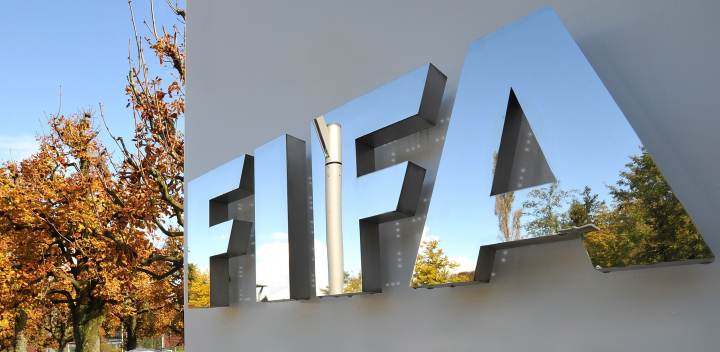FIFA Report Says Mexico’s 2018 and 2022 World Cup Bids Were Rejected Due to Missed FMF Deadline

The FIFA logo is seen outside the FIFA headquarters prior to the FIFA Executive Committee Meeting. Photo by Harold Cunningham/Getty Images
A day after German newspaper Bild claimed to have a copy of the document, FIFA has published the Garcia Report, an investigative look at the questionable tactics used by Russia and Qatar in order to secure World Cup hosting selections. The two countries are hosting the top soccer tournament in 2018 and 2022, respectively, but not everyone agrees with their assertions that the bidding process was up to par. Michael Garcia’s 434 page report was supposed to put an end to speculation, but, surprising most, he was unable to find any foul play in either bid.
Although both Russia and Qatar pulled out all the stops, they did not overstep or cross ethical boundaries as defined by FIFA. In fact, it was the executive board that crossed the line, as members such as CONCACAF general secretary Chuck Blazer, CONCACAF president Jeffrey Webb, and former FIFA vice-president Jack Warner were all implicated in possible corruption. Those members found to be linked to illegal activity were arrested in May of 2015 in Zurich, on charges including bribery and money laundering.
In the new report, Garcia didn’t reveal proof of any major acts of corruption, but he did go on to note that “executive committee members sought to obtain personal favours or benefits” and “displayed a disregard for ethical guidelines and an attitude that the rules do not apply to them”.
It was also said in the report that the FIFA Independent Ethics Commission received Mexico’s statement of interest and registration, but Mexico’s bid was deemed not up to FIFA standards, despite the country being the first to ever host two World Cups: in 1970, and as an emergency replacement for Colombia in 1986.
The report states that the Mexican Football Federation presented a “declaration of interest and registration” in 2009 for the candidacies of the World Cup in 2018 and 2022. However, without further explanation it states that “the registration of the candidacy was deficient.” This led to an extension for Mexico, but the country failed to meet that new deadline, locking the country out of either bid process. “FIFA sent a notice to the FMF on March 25, 2009 and offered an extension (until April 3) but Mexico’s offer was subsequently terminated for breach of the deadline.”
Of course, since then, Mexico has grouped up with the United States and Canada to submit a prospective joint bid for the World Cup in 2026. Some Mexicans were not pleased with the arrangement, as Mexico would only host 10 matches out of a possible 80; the Garcia report seems to place the blame on the FMF, who could have tried to get an entire tournament hosted in Mexico. Of course, it’s very possible that the bid would have failed in light of Russia and Qatar’s defeat of England and the United States, respectively.
One thing is clear: the next two World Cups will not be without their controversies, and this newest FIFA report is just another chapter in that saga.